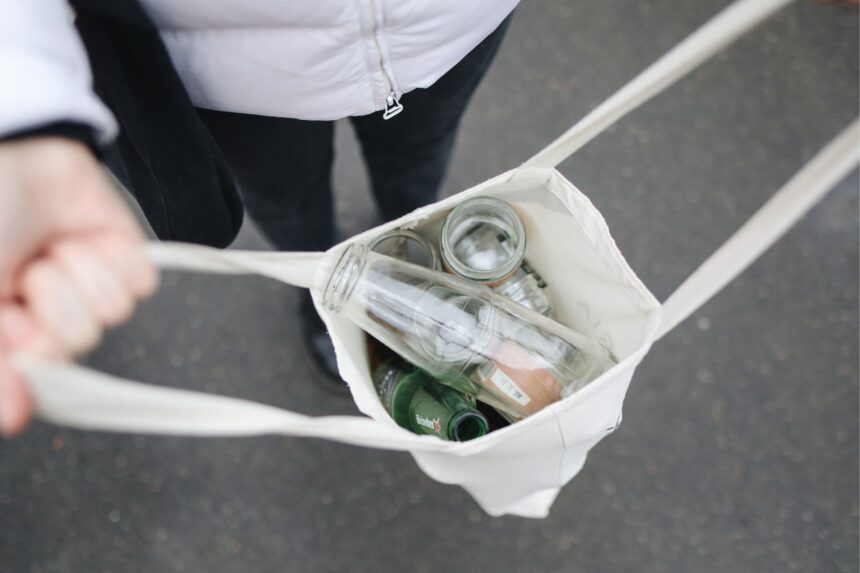I remember the morning I arrived at East Vancouver’s Return-It depot, coffee in hand and notebook at the ready. The line of people clutching bags of empty cans and bottles stretched around the corner—a diverse cross-section of the city waiting patiently for their deposits. Some were everyday residents, others clearly depended on these refunds for essential income.
“I come every two weeks like clockwork,” said Marian Li, a retired teacher who had organized her recyclables with military precision. “Five dollars here, eight dollars there—it adds up, but honestly? Sometimes I wonder if it’s worth the trip.“
Her sentiment echoes across Canada’s deposit-return programs, where participation rates have plateaued despite environmental awareness being at an all-time high. This recycling inertia caught the attention of Dr. Jiaying Zhao, a UBC sustainability psychology researcher who wondered: could the excitement of a potential windfall motivate people more effectively than small, guaranteed refunds?
The result is a groundbreaking study out of the University of British Columbia that tests whether a lottery-style approach to bottle recycling could transform Canada’s recycling landscape.
“The psychology behind lottery incentives is fascinating,” explains Zhao, who led the UBC research team. “People consistently overestimate small probabilities of winning large rewards, which makes lotteries particularly effective at changing behavior.”
In the six-month pilot program launched across eight Vancouver neighborhoods, participants could opt to forgo their standard 10-cent deposit refunds and instead enter those amounts into a weekly prize draw. For every bottle returned, they received one entry into a draw for prizes ranging from $100 to a grand prize of $5,000.
When I visited one of the test sites in Kitsilano, participants eagerly shared their experiences. “I used to let bottles pile up for weeks,” admitted Jordan Chen, a software developer. “Now my kids remind me to bring them in—they’re convinced we’re going to win the big one someday.“
The preliminary results are striking. Neighborhoods using the lottery system saw a 27% increase in returns compared to control areas using traditional deposit refunds. Particularly notable was the surge in participation from middle and higher-income households—demographics that typically show lower return rates despite consuming more bottled beverages.
This isn’t the first time lottery incentives have been tested for environmental behavior. Sweden’s “Pantlotteriet” system has been running since 2019, where consumers can choose to donate their bottle deposits to charity and enter a weekly lottery. The program generates over €6 million annually for children’s sports programs while boosting recycling rates.
The approach taps into what behavioral economists call “zero-price effect”—people’s tendency to perceive free products as more valuable than they actually are. By transforming small deposit refunds into lottery tickets that cost “nothing,” the perceived value increases significantly.
“It’s not just about recycling more plastic,” notes Dr. Maya Fischhoff of the Network for Business Sustainability, who wasn’t involved in the study. “It’s about creating social norms around recycling by making it exciting and communal. When someone in a neighborhood wins the recycling lottery, it creates buzz and conversation.”
The timing of this research coincides with Canada’s push toward a circular economy. Environment and Climate Change Canada estimates that less than 9% of plastic waste is currently recycled nationwide. Deposit-return systems are among the most successful recycling mechanisms, but even they capture only 70-85% of eligible containers.
But the lottery approach isn’t without criticism. During a community feedback session I attended in Mount Pleasant, concerns emerged about the impact on vulnerable populations who rely on bottle collection for income.
“For some people, that guaranteed money is essential,” argued community advocate Teresa Williams. “Making it a game might work for those who can afford to gamble with their refunds, but what about those who can’t?”
The research team anticipated this concern. “We designed the program to be entirely optional,” Dr. Zhao emphasized. “Traditional refunds remain available for anyone who prefers them, and our data shows the lottery actually increases the total number of bottles in the system, potentially benefiting collectors.”
The study also tracked whether the lottery effect persisted over time or faded once the novelty wore off. Encouragingly, the increased return rates remained stable throughout the six-month trial, suggesting the mechanism taps into sustained psychological motivation rather than temporary excitement.
On a rain-soaked Tuesday, I visited Downtown Eastside bottle collector Morris Johnson, who has been gathering recyclables for over a decade. His perspective offered valuable ground-level insight.
“More bottles in the bins means more work for folks like me,” he noted, sorting his day’s collection. “But the deposit system needs fixing either way. Ten cents hasn’t changed in years, while everything else gets more expensive.“
His point highlights a key policy consideration: deposit values across Canada have remained largely stagnant despite inflation eroding their incentive value. British Columbia’s 10-cent standard deposit for most containers hasn’t increased since 2004.
The UBC research suggests lottery incentives could offer a cost-effective alternative to across-the-board deposit increases. By redistributing unclaimed deposits into prizes, the system becomes largely self-funding.
Environmental economists have also noted the potential broader applications. Similar lottery mechanisms could potentially boost participation in everything from energy conservation programs to reducing food waste.
As provinces across Canada review their recycling frameworks, the UBC findings offer timely evidence for policy innovation. Alberta and Ontario have both indicated interest in modernizing their deposit-return systems in the coming years.
For everyday Canadians like Marian Li, whom I reconnected with at the end of the study period, the appeal is simple: “It made recycling feel less like a chore and more like a community activity. Even if I never win the big prize, it’s changed how I think about those empty bottles.”
The researchers plan to publish comprehensive results later this year and are already in discussions with provincial environmental agencies about larger-scale implementation.
Walking away from the recycling depot on my final reporting visit, I watched as a young family carefully sorted their containers, the children excitedly dropping bottles into the return machine. Perhaps the most valuable outcome of the lottery approach isn’t just in the numbers, but in transforming a mundane environmental duty into something that captures imagination and builds lasting habits—one bottle at a time.






